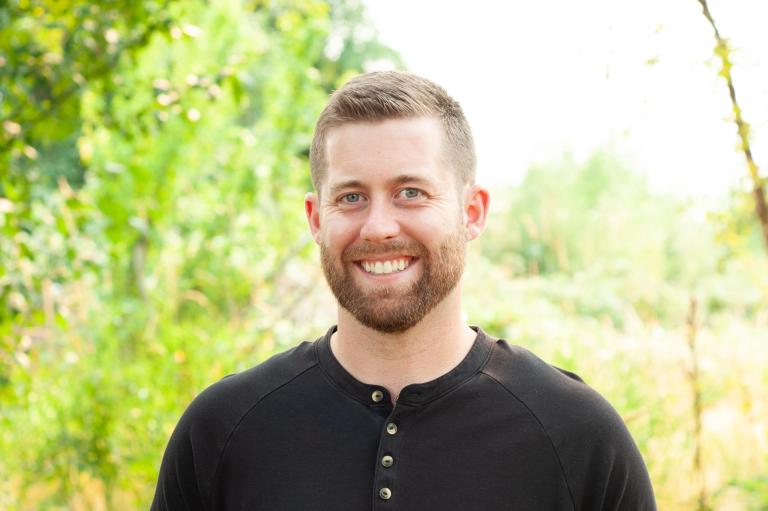When I was young, my parents told me the Tooth Fairy was real. It led me to believe I lived in a magical world, one filled with fairies and some form of strange, twisted economy whereby my teeth could be purchased without my consent, but only in the dead of night. It was an illusion created and birthed unto me, regardless of my desire for it, designed to be discarded with age.
When the moment of disillusionment came and I awoke to find my dad sneakily trying to make the extraction from underneath my head-covered pillow, I was ready to let this fairly harmless illusion go.

As I got older, I began to see the religion I was handed in a similar light. Throughout middle and high school, I developed my critical thinking skills, learning to use the scientific method to observe and to test hypotheses and ideas. And more and more, these new tools led me to the conclusion that my faith tradition might just be a collection of these illusions, agreed upon by communities to create a sense of purpose, an in-group in which to reside.
My questioning and curious spirit was generally affirmed and emboldened by my family and church community. In fact, it was in these spaces that I first witnessed rational critique of religion: members of my community conceding that the biblical stories didn’t necessarily happen and that Jesus may have just been an enlightened man – the “historical Jesus.”
It was good for me. One of the greatest strengths of Progressive Christianity is that it doesn’t separate the critical thinking brain from the spiritual equation; I was always taught to think analytically about our theology and wrestle with what I had been handed.
That said, in its emphasizing of reason and intellect, it also removed all sense of mystery from the Divine for me. There was little focus on spiritual development, prayer practices, or experiencing God in one’s own life. Attending protests was placed well above engaging the inner life on the list of the church’s priorities. (In this way, I began to see little difference between the church and the local political parties.) Everything could be explained if we just learned more, discussed more, or thought a bit harder about it.
And because of this, I began to see church as a weird extension of my school – a place where adults came to read stories of Jesus performing miracles and then rip them to pieces in the next moment. I couldn’t see much of a difference between this and what I was being trained to do in Ms. Gold’s Language Arts class.
And without any sense of Mystery – an overwhelming experience of apathy took hold within me.
- If everything in the Bible was human-centered and to be questioned and challenged, how was it different from Harry Potter?
- If Jesus was just a real good human, how was he different from Martin Luther King Jr. or Gandhi?
Incoherent and Irrelevant
It was at this time that I began to notice more contradictions in the ways we gathered as a community: the hymns we sang didn’t match the messages from the pulpit; we kept praying “up” to a form of god we had long since reasoned out of existence; even the use of nearly constant male pronouns for the Divine continued despite our recognition of God’s non-binary nature.
It felt incoherent and increasingly irrelevant to my life.
Using the very tools I was handed by school and by church (critical thinking, analysis, and reasoning), I began to dismantle the church and our theology, leaving myself with no reason to continue calling myself a Christian if this is what it meant to be one.
The final straw came in one of my history classes in school. Somehow connected to the topic of Palestine and Israel, I made a passing comment about being a Christian and yet not believing in heaven or hell as literal places. Despite considering myself more of an agnostic at this point, this statement was one of identity and autonomy for me: a public recognition of nuance in my theological development.
For our token fundamentalist, Katie, it was a direct assault on her entire belief system.
She turned her entire body toward me, spitting “you pretend to be a Christian!” before going on some sort of linguistic crusade against my very existence. While I don’t remember exactly what she said (although I do remember Mr. Yudin wonderfully shutting her down after a moment or two), I know what I took away from this experience.
I certainly wasn’t her kind of Christian – that much had been known for awhile. But on that day, coming into that moment with all my questions and doubts and observations of my own progressive Christians, I decided I wasn’t any kind of Christian.
If Katie’s fundamentalist Christianity was clearly harmful and hate-filled, I experienced my progressive Christianity as a nicer, more human-positive, but in practice, mediocre and muddled, version at best. And I decided I didn’t need either in my life.
During February, I’ll be exploring my own story with Progressive Christianity, with religion, and with my constantly evolving spirituality. It is a story from the gymnasium to the sanctuary, beyond the walls of institutionalized religion (and sometimes back again), always falling deeper into my own experience and relationship with the Divine. If you’d like to read it in order, you’ll find them on the blog’s home page.













